Social media inspires Japanese women to dash into rickshaw pulling
A profession historically dominated by men, rickshaw pulling in Tokyo is witnessing a rise in female pullers who are gaining attention on social media and the city’s streets, report Mariko Katsumura and Issei Kato
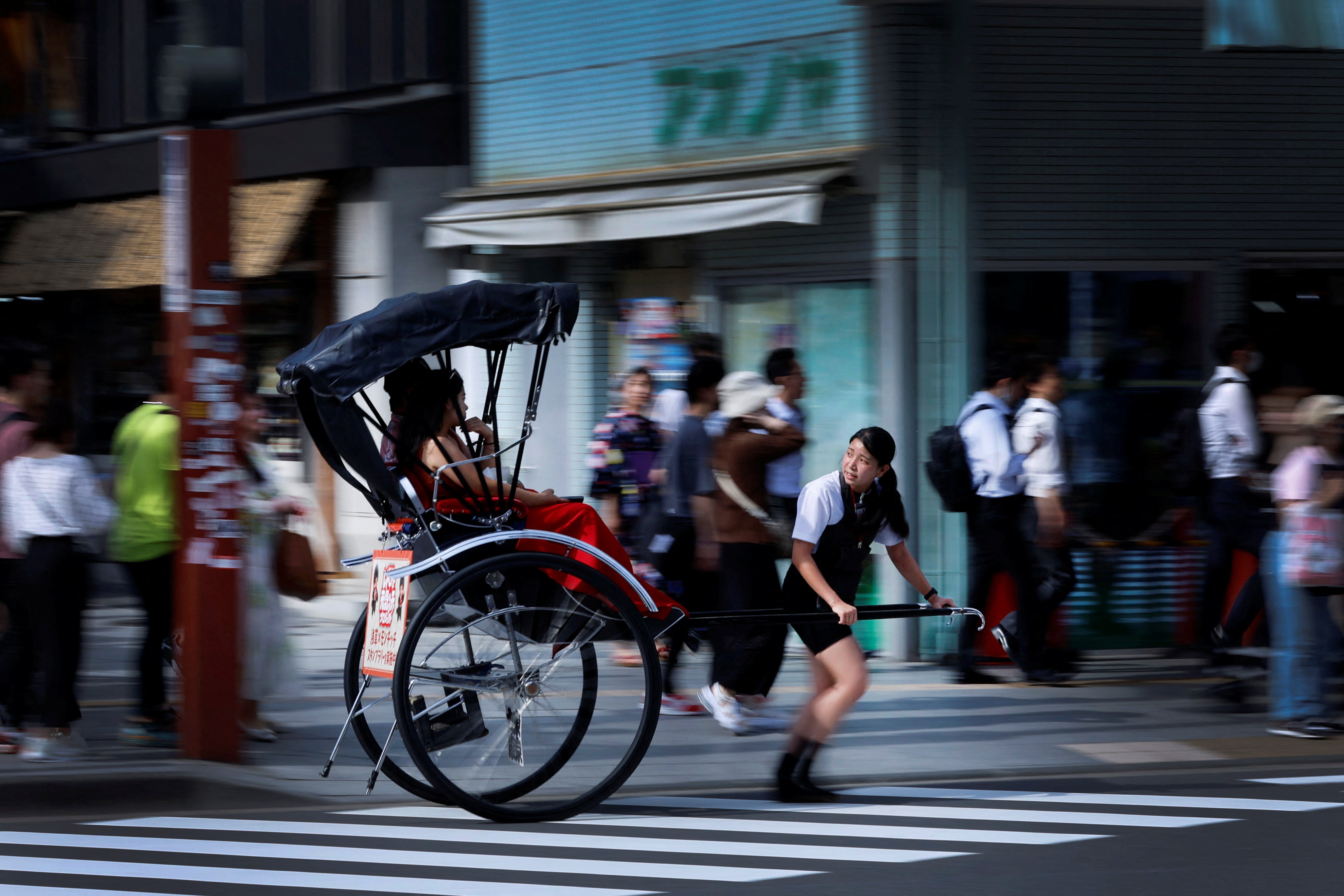
Rickshaw puller Yuka Akimoto breathlessly dashes down the streets of Tokyo under a scorching summer sun, two French tourists enjoying the sights from the back of her black, two-wheeled cart.
When the 45-minute tour comes to an end, the 21-year-old bows deeply to her clients and offers a blistered palm –covered with a clean cloth – to help the couple alight. Sweat pours down her flushed face.
Akimoto is one of a handful of women who have chosen to pull rickshaws in Tokyo, attracted to the male-dominated profession through social media, which in turn has given some of these female pullers a strong local and international following.
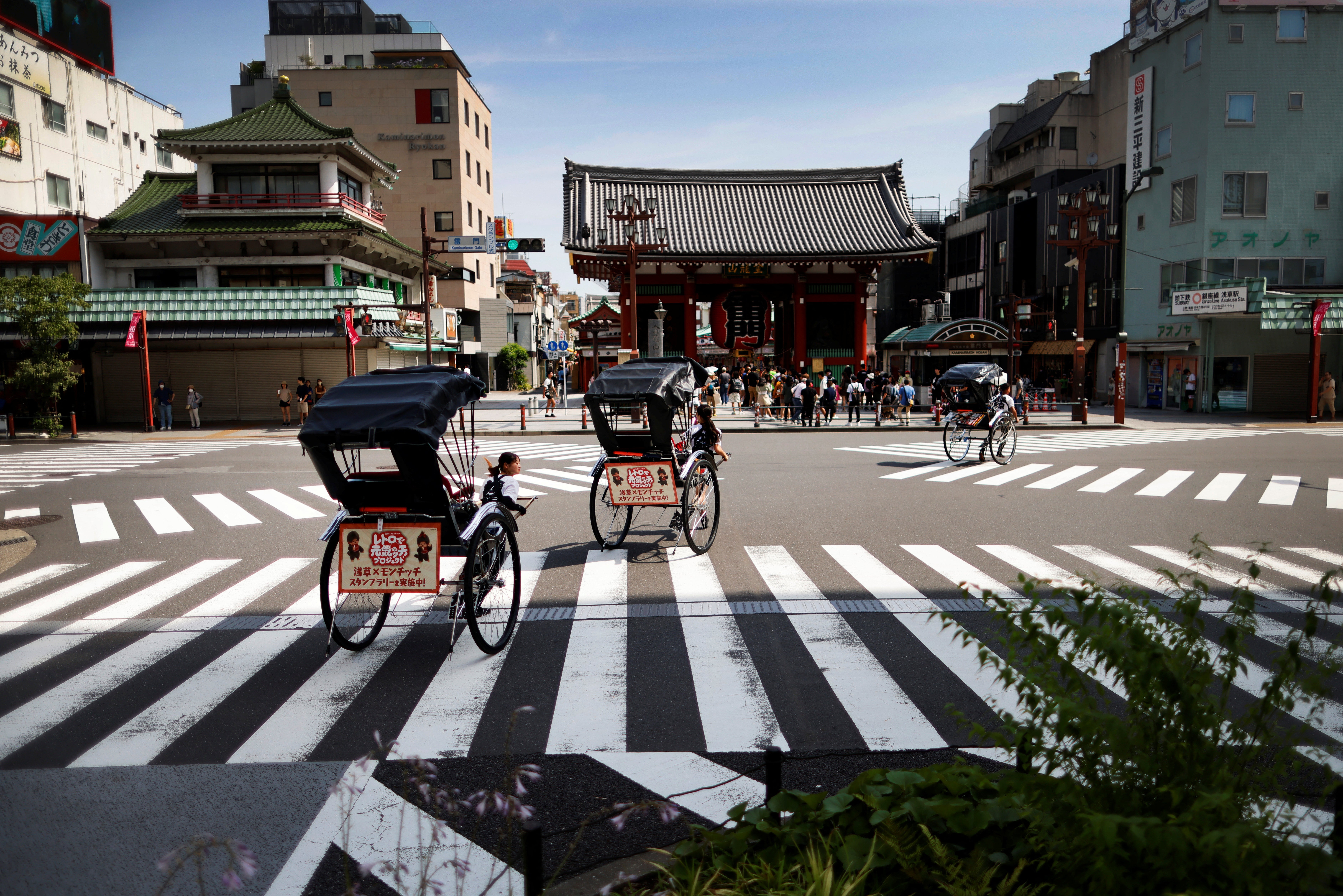
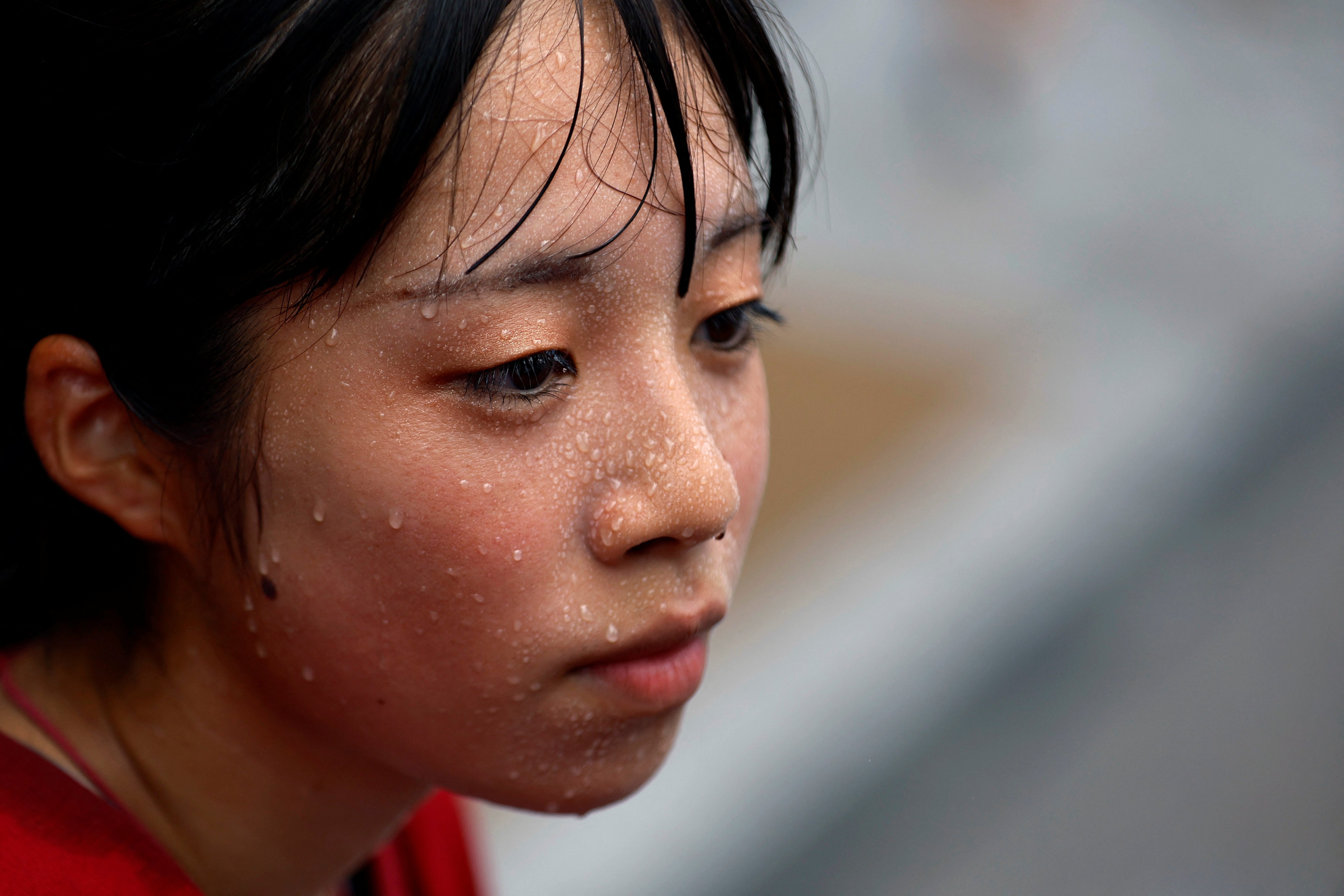
“I don’t deny it was extremely hard at the beginning,” she said, as the rickshaw can weigh up to 250kg (551lb). “I’m not athletic and the cart felt so heavy.”
Now, she says she loves her job and wants to work as long as she is physically able. A tag hanging on a cord around her neck reads: “I don’t want to give up.”
Akimoto joined Tokyo Rickshaw two years ago after the pandemic dashed her plans to start a job at Tokyo Disneyland. The company, which mainly operates in the Asakusa tourist area, says about a third of their 90 pullers are now women, and the company is seeking more female recruits.
Wearing traditional tabi split-toed socks, Akimoto and her fellow rickshaw pullers walk or run an average of 20km (12 miles) a day, no matter what the weather.
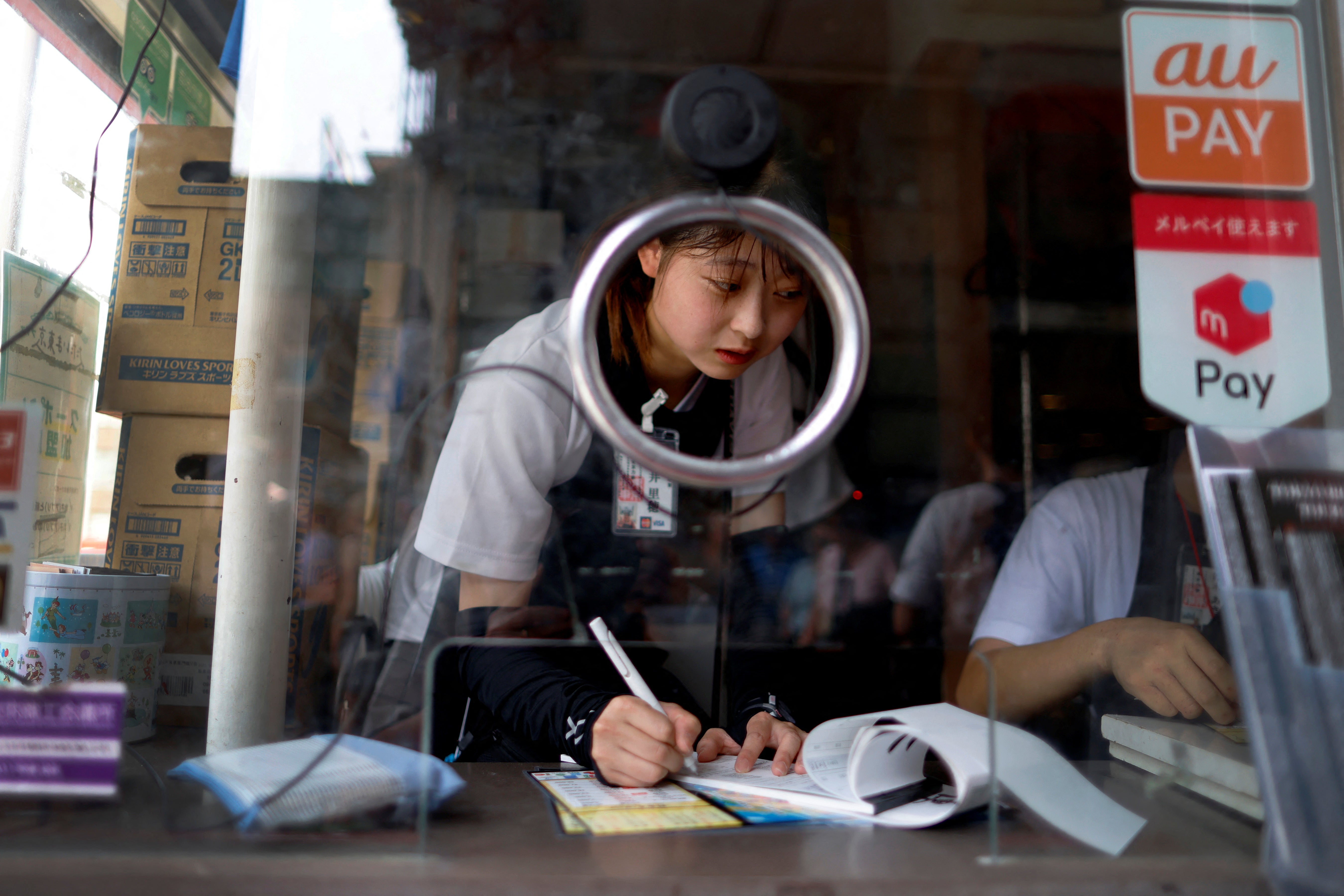
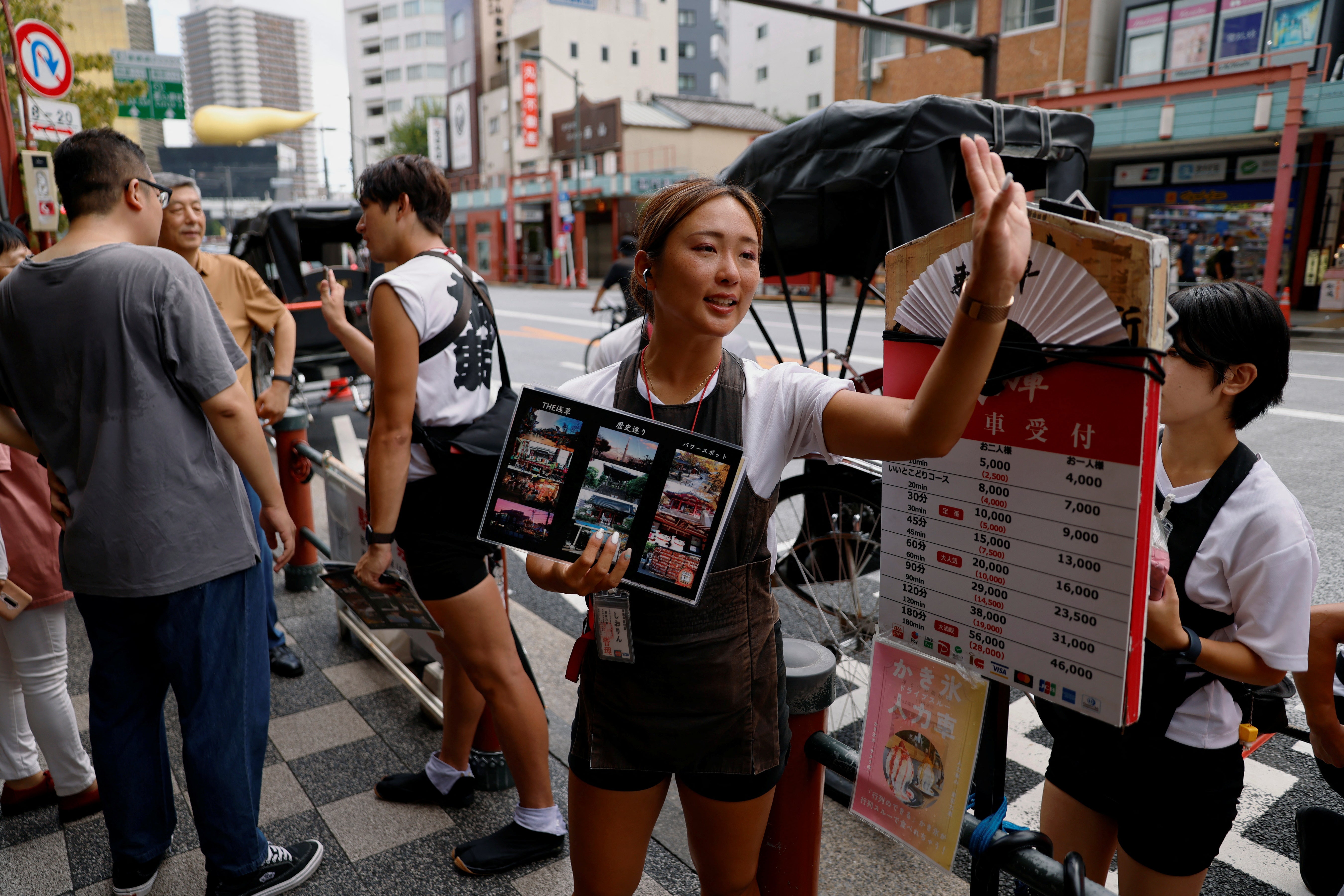
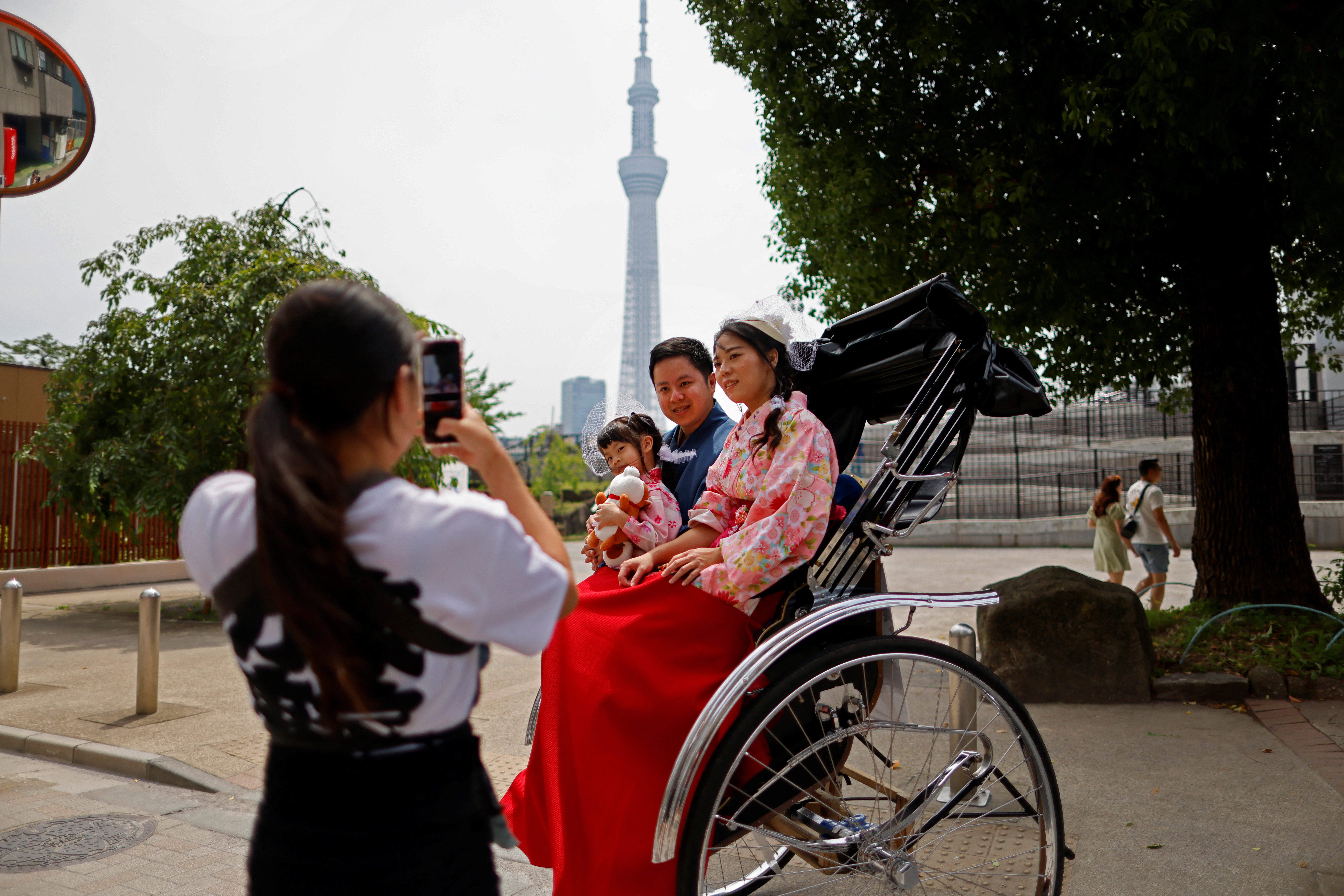
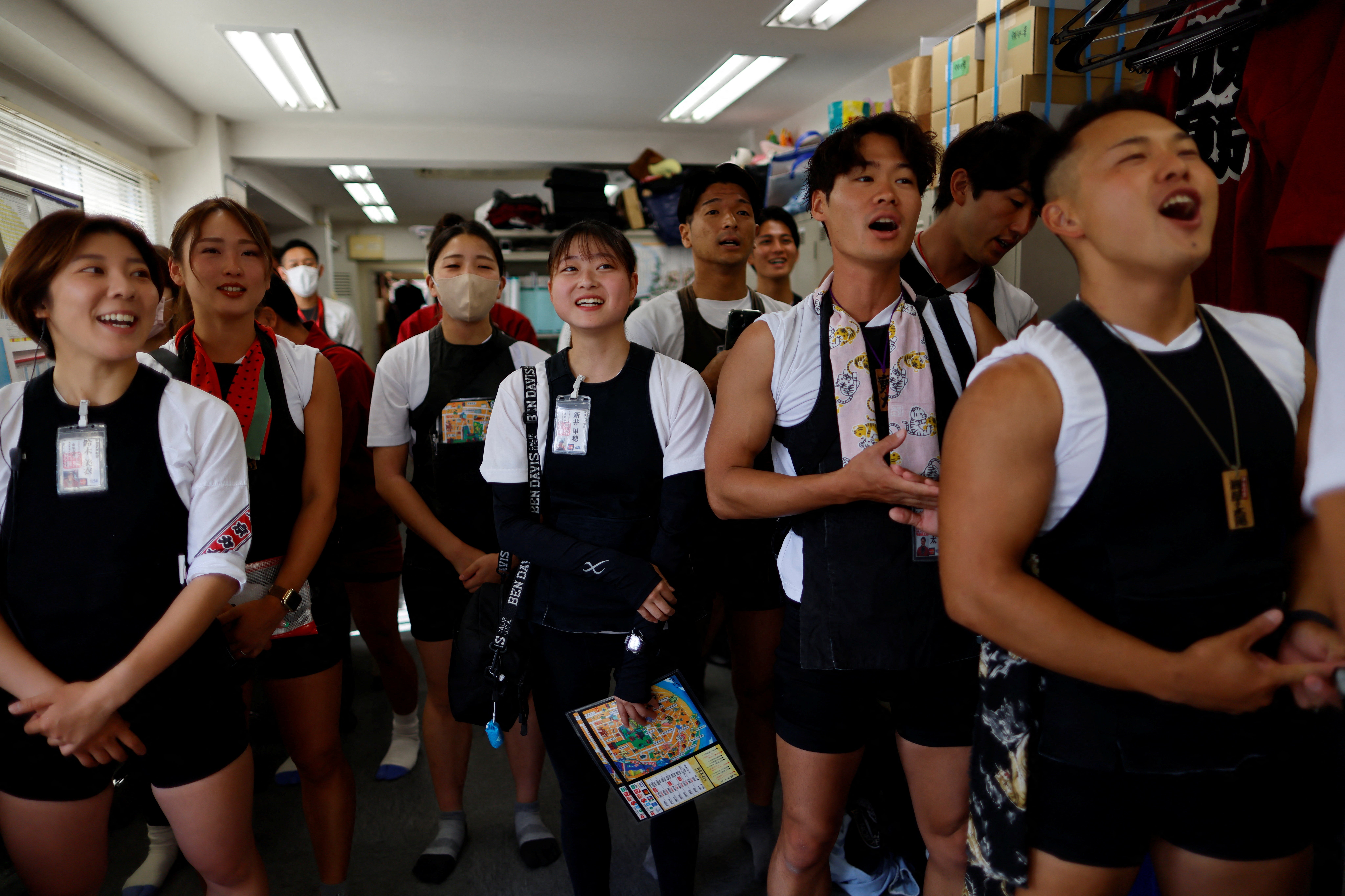
In addition to being physically strong, rickshaw pullers must have extensive knowledge of Tokyo and know how to engage the tourists who mostly hire them for sightseeing.
The most popular drivers make over a million yen ($6,730) a month, three times the national average, Tokyo Rickshaw said, adding that less than 10 per cent of all applicants get offered a job.
The pullers actively promote themselves on social media, winning repeat customers who request them personally.
And it was those social media posts that drew college student Yumeka Sakurai to join the company.
“I’ve watched many videos of women training hard and becoming rickshaw drivers themselves. They gave me a confidence that I could do it too if I tried hard,” the 20-year-old said.
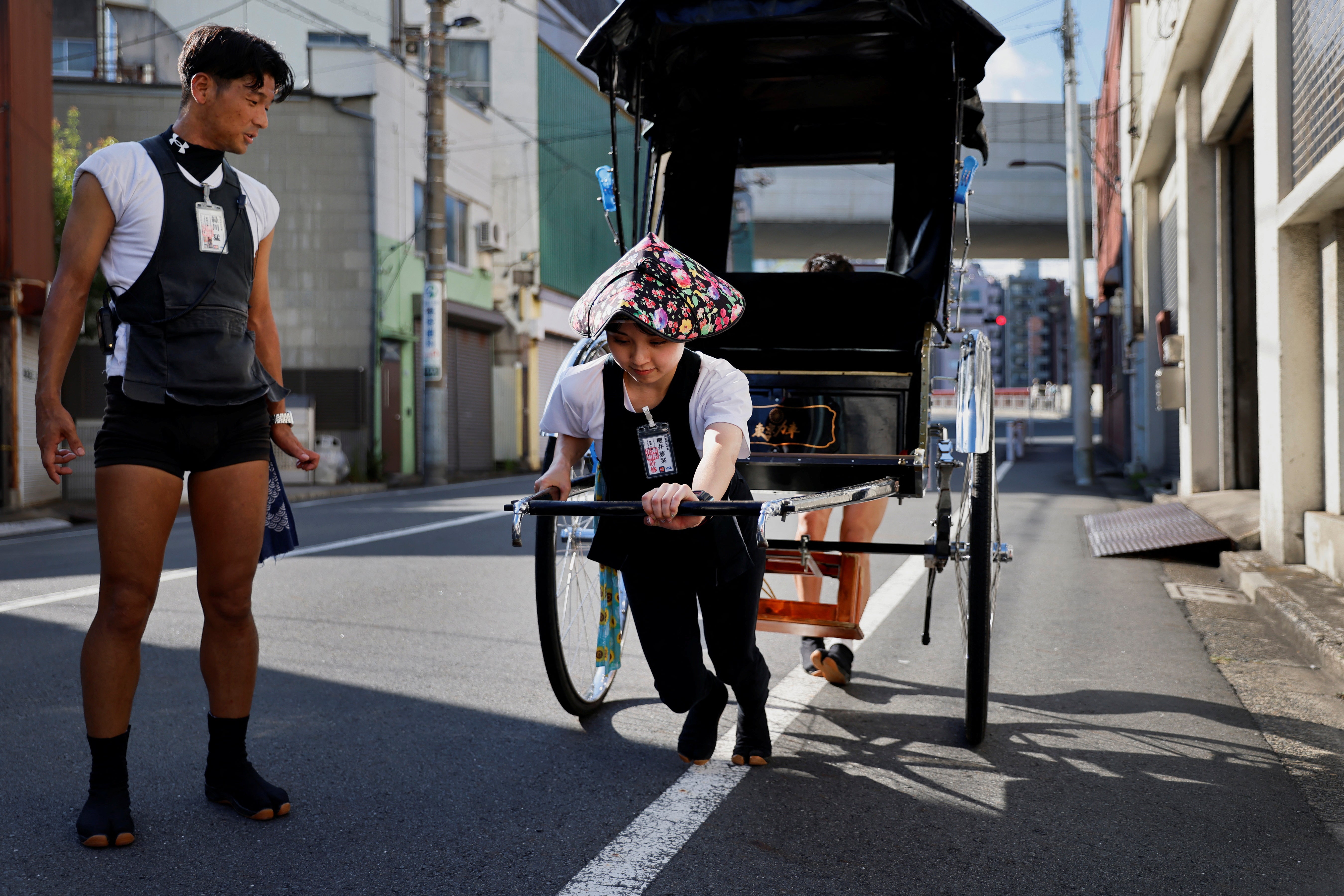
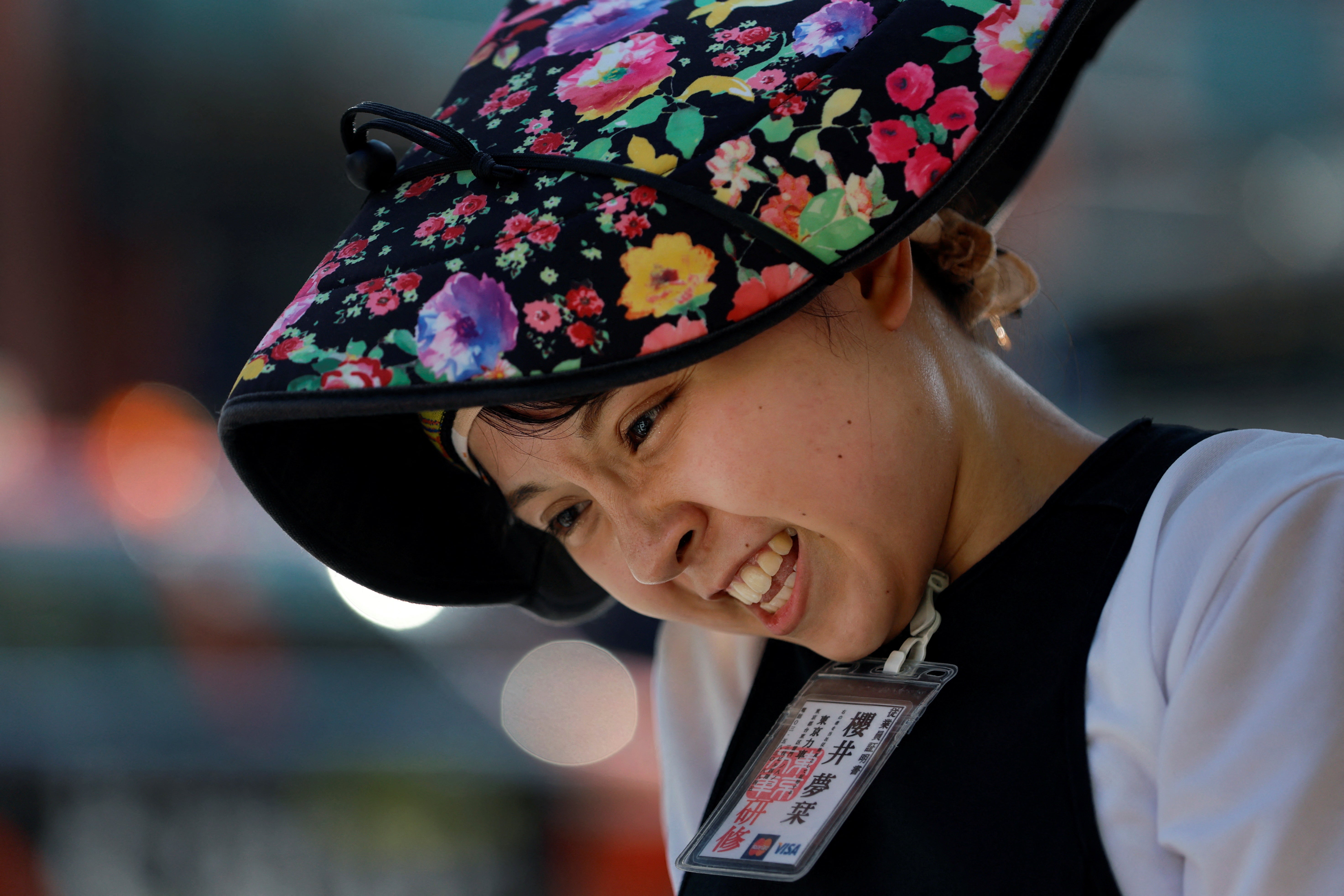
After four months of training, and overcoming opposition from friends and families, Sakurai says she is now proud to haul passengers in her rickshaw.
Veteran puller Shiori Yano, 29, with nine years of experience, juggles the demands of the job and her family.
The former fitness instructor took a four-year break after giving birth. She now pulls the rickshaw for eight hours a day, rushing to pick up her daughter from daycare before heading home to cook dinner and do other household chores.
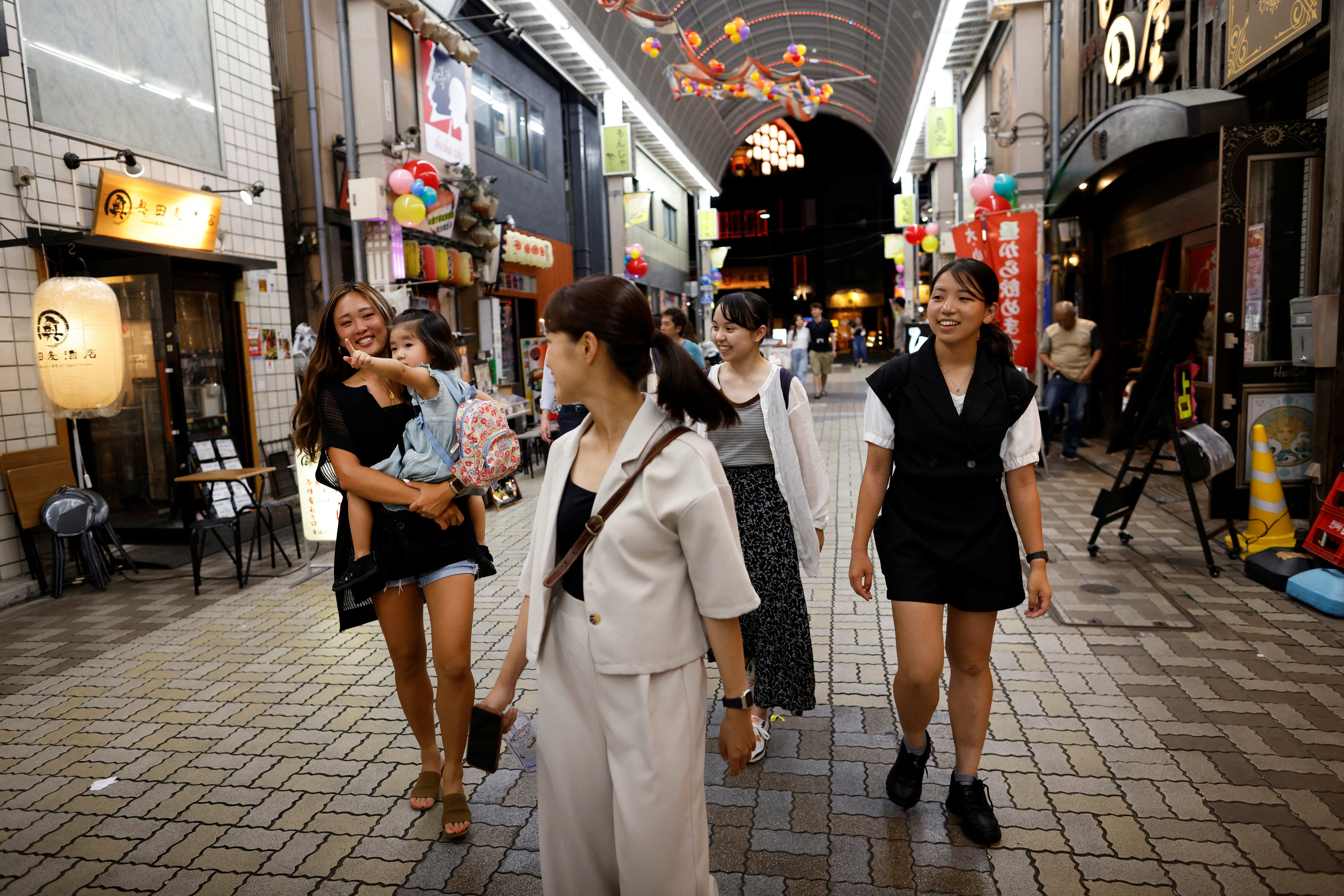
“This job looked flashy from the outside but I’ve had some hard times, including when I was rejected in favour of a male driver,” Yano said. Still, she says she will continue to work because she enjoys it.
Tokyo Rickshaw president Ryuta Nishio said sometimes he gets complaints that women should not be doing such physically demanding work. Female pullers also occasionally face sexual harassment or have their knowledge challenged by male customers, he added.
“We treat both male and female pullers completely equally,” Nishio said. “The women say they want to be treated as same as the men and, in fact, many of them are way tougher.”
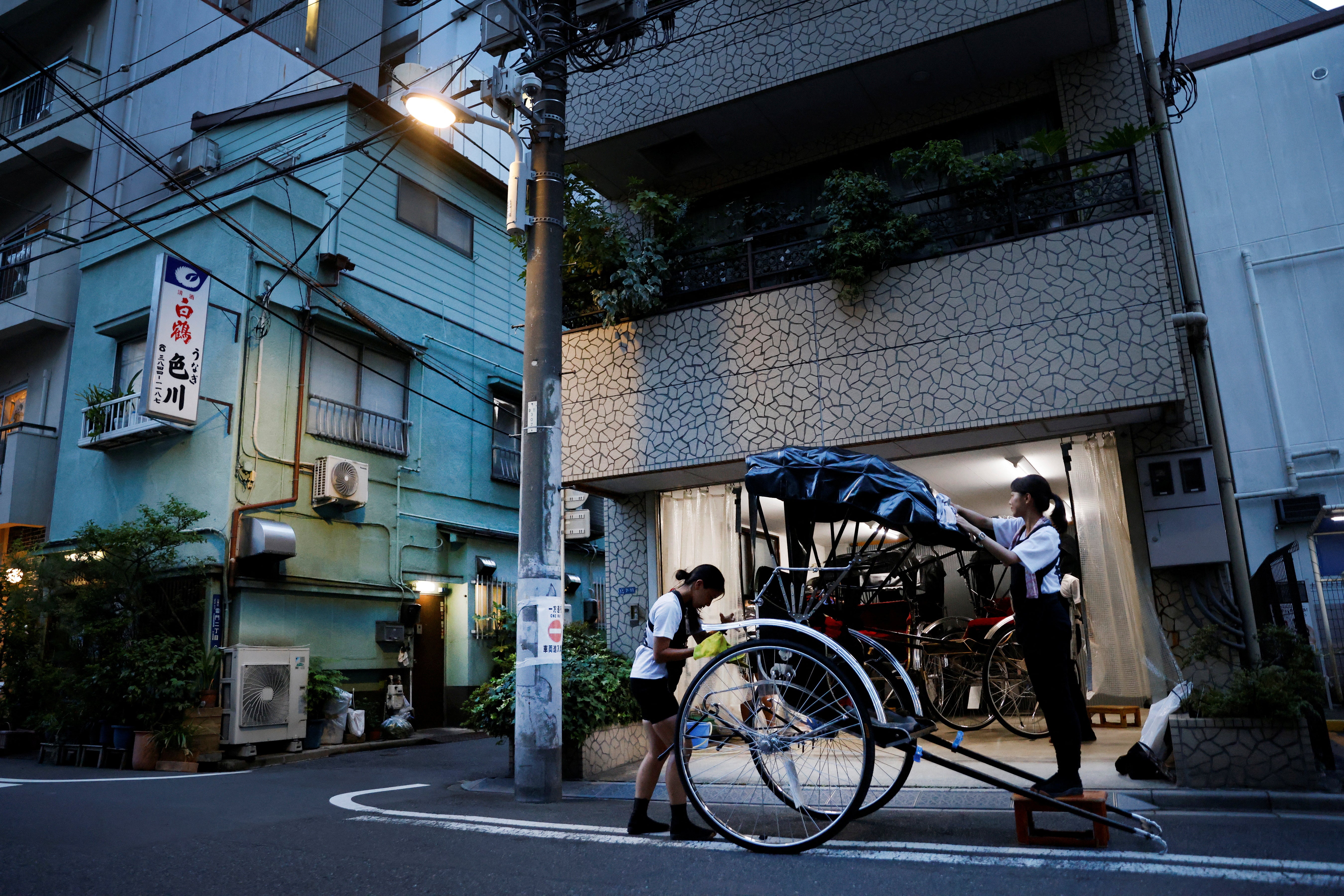
Photography by Issei Kato
Reuters
Join our commenting forum
Join thought-provoking conversations, follow other Independent readers and see their replies
Comments
Bookmark popover
Removed from bookmarks